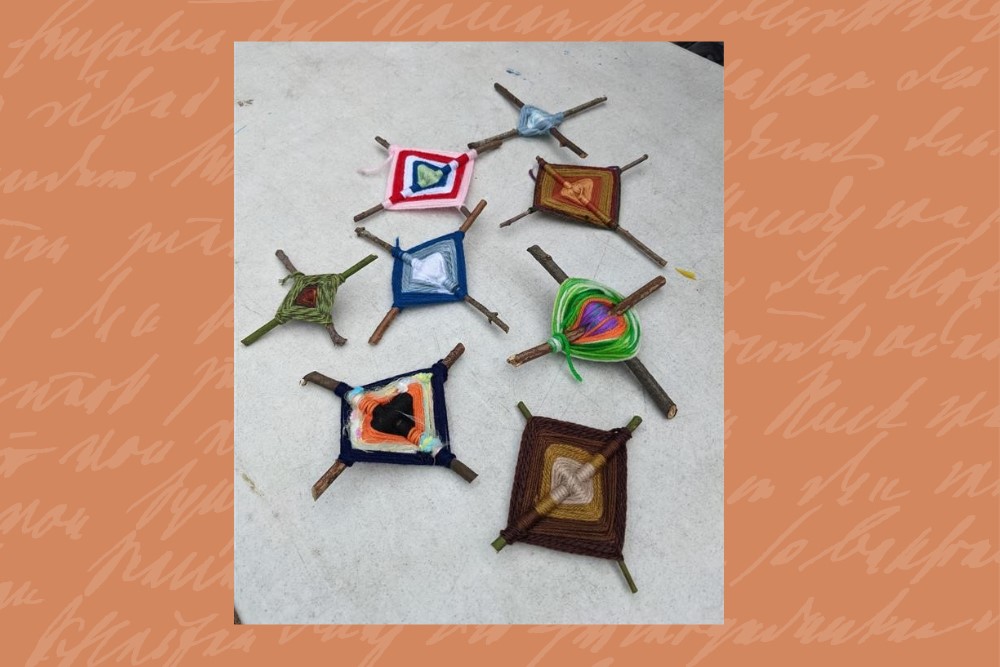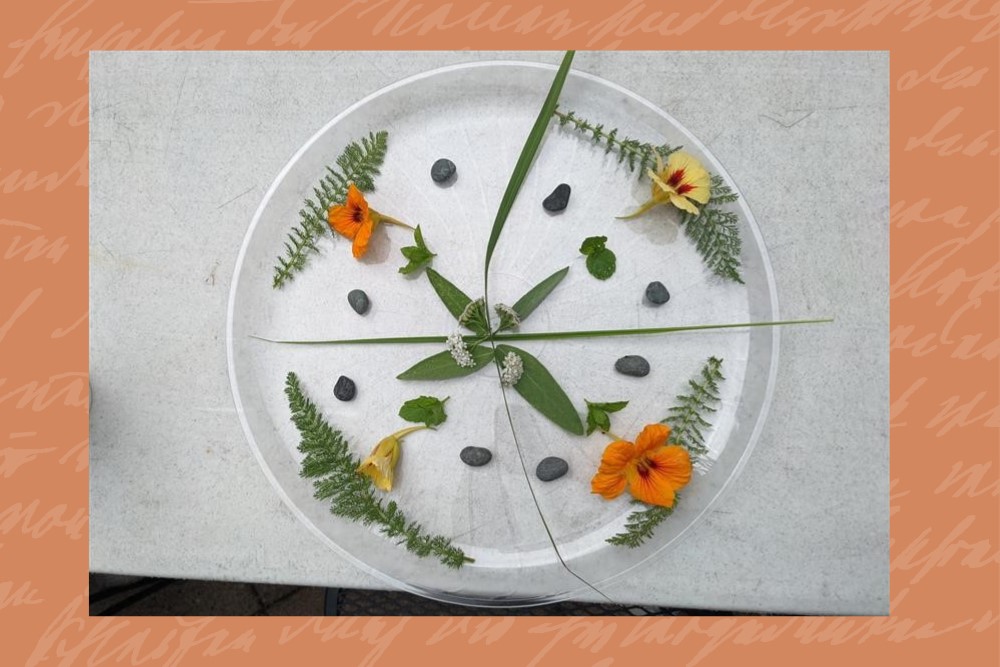Every once in a while, we like to introduce organizations that make a difference in our community and that use journalling as part of their programs. We recently had the pleasure to talk with Vanessa Tsang, Program Manager of the YWCA Mindset Program in Vancouver, which uses art and journalling in some of their workshops.
Run in partnership with Coast Mental Health, Mindset is a 12-week-long program that uses a combination of holistic approaches to help job seekers with mental health barriers. With workshops like gardening, therapeutic horticulture, stress management and self-advocacy, and a strong focus on expressive arts, Mindset supports job seekers in finding employment or volunteer work, or in applying for higher education and reaching their full potential.
What do you think are the benefits of incorporating art as part of mental health programs?
I think there are multiple different benefits. For participants, sometimes they think that art means they need to create something beautiful, but what we tell them is that when we are using expressive art or any kind of art in our programming, it’s not so much about the outcome of the product but about the process of creating that piece of artwork. So, some of the benefit is just giving people a medium to express their thoughts and their feelings in a very non-judgmental way. Depending on how somebody is feeling that day, they may choose to use certain colours or certain techniques, or even how hard or how light they shade in their colours, that can also be a form of expressing emotions. I think the benefit of including art into our programming is to just be able to help people be in touch with their feelings, be able to express them through art, and it’s just an opportunity for them to let out those emotions and to process them.

What we frequently do is invite our participants to share about their artwork afterwards within the group, and oftentimes that gives them a second opportunity to express themselves, this time verbally expressing their emotions, which can be very therapeutic. And the other benefit is that they often are met with very validating reactions from the other participants, who are very supportive; they might react with a heart emoji, or they may thank them for sharing – things where they offer a lot of encouragement and that’s where they get a benefit too. Overall, I think that being able to incorporate art is a really nice and healthy coping mechanism.
And I imagine it also helps the people listening to the presentation as they can relate to those feelings and know that they are not alone.
Exactly! There is a lot of validation shared between the members and that helps people know that they are not alone, they are not the only ones feeling anxious or whatever they may be feeling. And just getting that support and creating that sense of connection in that community can be very healing.
Do you incorporate journalling as part of the program?
We sprinkle journalling into some of our workshops. Sometimes we do it in expressive arts, or our visioning workshops or self-care workshops, and we try different activities with them. For instance, sometimes we’d journal about how they are feeling at that time and in that moment, or sometimes it would be a more reflective journalling, like if they could write a letter to themselves three years into the past, what would they say, or if they could write a letter to themselves three years into the future, what would they say?
What kind of benefits have you seen from participants using journalling as part of their process?
I think it’s another form of expression and when people are just jotting things down, sometimes when they read it over to themselves, they might be surprised by what they are saying. Writing feelings on paper can be therapeutic. And some of the reflective pieces can give an opportunity to participants to provide themselves a positive self-talk or it could be an opportunity to catch any negative self-talk as well. That can also be beneficial when they are aware of those things. But I’d say that one of the biggest benefits is being in tune with their emotions and not judging themselves by how they are feeling.

What other tools does Mindset provide?
We provide employment-related workshops like resume writing, cover letter writing, interviewing skills, and we talk a lot about stress and coping mechanisms, self-advocacy, different tools and workshops to help people regain their confidence or perhaps learn new skills. But I’d say one of the common themes through our workshops is providing reminders because a lot of our participants tend to be too hard on themselves, and it becomes very clouded when they see all the things they think are negative about themselves. It’s very hard for them to identify those things they actually have that are positive, and all of their strengths. So, for us it’s a lot of shifting that mindset and helping them identify what those strengths are and to acknowledge them, because they do have them! We provide a lot of those reminders for them to be gentle and to be kind. We help them create a self-care goal plan because they often put self-care last; they try so hard with other areas in their life that they feel like they don’t deserve that self-care. We help them process that and create a concrete plan that would include if they were to self-care in the moment or were triggered in the moment, what would be some coping mechanisms they could implement? Or if they had five or ten minutes in their day, what would a self-care activity look like? Something that has been really helpful and that participants have shared with us is a piece in accountability where our career advisors would check in with them and ask, “How was your week and what self care-activities did you do?” And if they didn’t do any self-care activities that’s okay too, but we are trying to identify the barriers that prevented them from doing that and to help set some goals of self-care for next week. It’s not about making them feel guilty about not doing self-care, but to help them work through those barriers.
Other tools that we implement are light breathing and box breathing activities or light meditation. It’s not a heavy focus on any of these self-care activities, but more like a trail so people who already like them can enjoy them, but people who have never tried it get a taste of it and they can choose it. Not all activities work for everybody, and some people are pleasantly surprised after they have tried them.
If you want to learn more about the YWCA and Mindset Program please visit their website.
Mental health affects us all. If you or someone you know needs help, you are not alone.
Call 1-833-456-4566 for Crisis Services Canada or 1-800-273-8255 for the National Suicide Prevention Lifeline in the United States.
Outside of North America, please visit the International Association for Suicide Prevention for a database of resources: www.iasp.info





